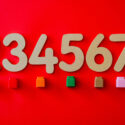Dyscalculia might not be familiar to many, but it is one of the most common learning difficulties. Dyscalculia is a condition where a person struggles in understanding and performing math problems, or any tasks related to mathematics. Most children may have trouble in mathematics at some point especially during their first few years in school, but this is normal and they do eventually overcome it. However, in the case of children with dyscalculia, they may struggle a lot more and it perpetuates over time.
Children with dyscalculia struggles in understanding mathematical concepts such as more or less and bigger or smaller. They also lack number sense which is understanding the connection of the word form and numeric form of numbers. Children with dyscalculia also struggles in performing or solving mathematical equations. Additionally, they may struggle in counting, telling time and understanding math symbols.
Dyscalculia is also referred to as a mathematical learning disability or mathematical disorder. Some even call it math dyslexia. However, calling it math dyslexia can be misleading. Dyslexia and dyscalculia may have some similarities, but they are not the same thing. Dyslexia is a reading disorder while dyscalculia is a mathematical disorder.
Symptoms of Dyscalculia
Symptoms of dyscalculia varies greatly among children of different ages. Experiencing Math problems at a young age is quite common among children which makes it difficult to detect dyscalculia. However, symptoms of dyscalculia become more apparent as the child grow older. Here are some of the symptoms of dyscalculia to look out for in your child:
Pre-school
- Trouble in the order of numbers when counting. Forgets and skips numbers more frequently than other children
- Struggles in connecting numeric symbol to its word from. For example, the child may not understand that number “1” is the same as “one”
- Difficulty in understanding concepts like smallest or largest and tallest to shortest
Lower Primary
- Poor at identifying and using Math symbols like + and – properly
- Difficulty in completing mental sums and may still use fingers when counting or solving simple math equations
- Difficulty in understanding the concept of greater than and less than
- Struggles in identifying the place value of a number and often writes the numbers in the wrong order
Upper Primary – Secondary School
- Takes too much time in understanding and solving Math problems
- May have a hard time dealing with money due to difficulty in computing total cost of things and change
- Actively avoid situations or games that may involve Math
- Difficulty in understanding information on charts and graphs
- Struggles in activities that are related to speed, distance and direction
Possible Causes of Dyscalculia
While there are no exact causes of dyscalculia, researchers identified some possible factors related to it. Firstly, dyscalculia may run in families. Genetics plays a big role in whether the child may or may not have dyscalculia. Secondly, dyscalculia can be caused by an under-development in the brain areas that are associated with numerical and mathematical processing. Thirdly, prenatal conditions have shown to affect the baby’s growth as well. For example, dyscalculia has been linked to fetal alcohol syndrome, premature birth and low birth weight. Lastly, dyscalculia can also be caused by injuries to areas of the brain that are responsible for mathematical processing.
Treatment
Unlike dyslexia, there are no specific teaching program for children with dyscalculia. However, professionals can provide strategies and a systematic approach to help kids learn and understand Math. There are no specified medications to treat dyscalculia. If your child is diagnosed with dyscalculia and you want to understand the condition better, seek help to from special education teachers, Math tutors (who are experienced in working with children with learning difficulties), educational therapists, child psychologists and pediatric neuropsychologists.
Bibliography
Learning Disabilities Association of America. (2013, September 2). Dyscalculia. Retrieved from ldaamerica.org: https://ldaamerica.org/types-of-learning-disabilities/dyscalculia/
The Understood Team. (2014 – 2019). Understanding Dyscalculia. Retrieved from understood.org: https://www.understood.org/en/learning-attention-issues/child-learning-disabilities/dyscalculia/understanding-dyscalculia
Tamba, R. (2018). How to . Quezon City: MCA Publishing.

Comments are closed